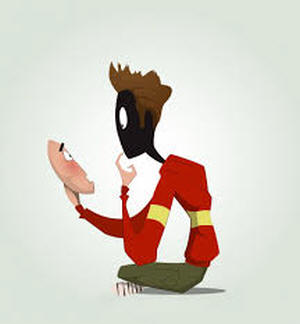 |
The
difference between identity and a role |
Roles in Society and Personal Identity
The Nature of Roles and Identity
In human interaction and society, "a role"
refers to the social function or position
someone occupies in a given context, such as
being a teacher, parent, or employee. These
roles come with specific expectations,
responsibilities, and behaviors that society
associates with them.
"An identity," on the other hand, is a
deeper, personal sense of who one is,
encompassing values, beliefs, experiences, and
self-perception. While roles are external and
dynamic, identity is internal and more stable
over time.
The Risks of Merging Role and Identity
The distinction becomes critical when people
merge their identity with a role. If someone
identifies too closely with a particular role,
such as their job or family status, any change
or loss in that role can lead to a crisis.
For example, someone who defines their entire
self as being a successful professional may
experience profound distress if they lose their
job. The external change in their role disrupts
their internal sense of identity, potentially
leading to feelings of worthlessness, anxiety,
or depression.
The Temporary Nature of Roles
Moreover, roles are often temporary, shaped
by specific circumstances, while identity,
ideally, should remain adaptable and fluid
across different phases of life. When someone
overly aligns their identity with their role,
they risk losing touch with the multifaceted
nature of their true self.
This rigid attachment can make it difficult
to cope with inevitable life changes, as it
creates a fragile sense of self based on
external validation rather than inner
resilience.
Societal Pressures and Identity Confusion
The problem becomes acute in societies where
certain roles are given disproportionate
importance, such as professional achievements or
family status. This societal pressure can push
individuals to internalize these roles as their
core identity, making them vulnerable to role
loss or change.
When the role is no longer sustainable, the
person may struggle to rebuild their sense of
self, potentially leading to severe mental
health issues like depression, burnout, or a
sense of existential loss.
Maintaining a Healthy Distinction
In sum, while roles serve an important
function in society and help individuals
navigate their interactions, they should not be
confused with or replace one's identity.
Maintaining a clear distinction between who we
are and the roles we play can lead to greater
psychological well-being and resilience in the
face of change.
|